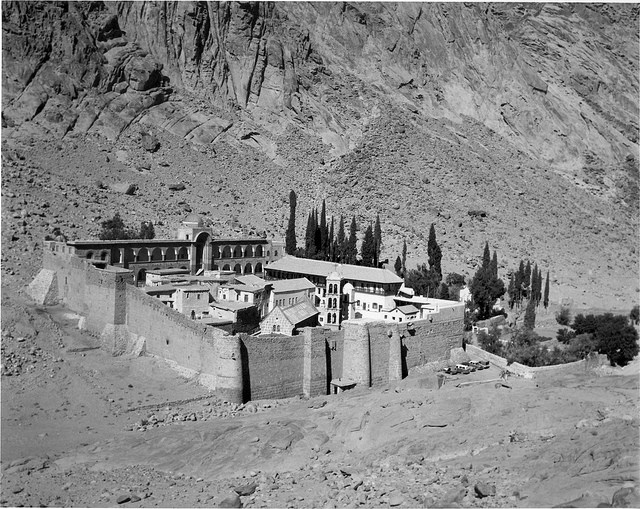Articles
Karen Armstrong and the prophet of Islam
True spirituals refrain from sweeping generalization and the traps of self-righteous judgmental conclusions in the full cognizance of human’s cognitive limitations, the short span of human’s life and the unfathomable expanse of an extended universe. True that certain mortals are endowed with exceptional intuitive powers that appear to be well aligned with the resourcefully unlimited universal intelligence, however, such mortals in their high spiritual trance mode are effusive, esoteric and benevolent in thought and in the generosity of the spirit.
The above prelude is tantamount to my disclaimer in what follows of conjectural professes and elaborations relating to a book that I read a while ago, a few months ago, by the world’s, rather history’s ever foremost authority on the history of religion, Karen Armstrong. The Book, published in 2006, is entitled “Mohammad: A Prophet of Our Time.” The book, as if miraculously, came to put the final touches and close a circle on long disjointed realizations and general conclusions.
What renders Armstrong’s theses more readily relevant are two facts of life: my great familiarity with many of her writings, a number of which are best sellers (such as “History of God,” “Islam: A Short History,”” Holy War:The Crusades and Their Impact on Today’s World,” Jerusalem:One City, Three Faiths,” and currently, I am currently finishing “The Great Transformation:The Beginning of Our Religious Traditions”); and Armstrong’s undisputed scholarly authority on the history of religion ever equipped with the discipline of an erudite’s critical scrutiny of history well above the mundane considerations of social conditioning and the age’s conforming beliefs.
What attracted me in the first place to make a serious and most eager go on Armstrong’s work “Mohammad: A Prophet for Our Times” is the search for a satiating detached scholarly perspective on an ominous subject matter, especially coming from an author who is well known for her moderation, intellectual integrity and scholarly objectivity, and who is simultaneously deeply familiar with Islam and the unique historical circumstances of the evolution of the Muslim reality at the various historical junctures. Armstrong succeeded in satiating the most part of my intellectual and spiritual curiosity, at least in terms of triggering a further thinking process, than an attempt quarter a century ago of a reading by a Muslim authority, Subhi Al-Saleh, on the confusing topic of “Al-Nasikh Wa Al-Mansoukh,” i.e. a central issue of Quranic recording where posterior verses annulled certain earlier revelations; an endeavor that left me more baffled than answered my initial inquisitions and curiosity.
Serendipity could hardly be the appropriate definition of my judgment of Armstrong’s most lucid recount of the defining stations of Prophet Mohammad’s proselytizing extended mission, rather, and as related in an adage that I ignore its authority: “Opportunities Come to Those Who Truly Deserve Them.” For, one never ceased, with an ever agile inquisitive mind, to search for clues and missing links to complete a circle on cardinal issues of abstract dominance that rules on one’s temporal and spiritual existence. Armstrong helped close that circle.
Prophet’s mission
Relying on exclusive Islamicly recognized historic biographies and renderings relating to the Prophet, foremost “Al-Sirah” to “Ibn Ishaq,” Armstrong most beautifully and lucidly married the historic event and occasion around the Prophet’s mission in relating most meticulously the influencing social settings and myriad constraining inherent communal and social relations with the spiritual revelations, the crux of the Prophet’s mission.
Here, and in complete analytical objectivity that’s not totally above further critical scrutiny, Armstrong makes reference to the “Satanic Verses,” in the proper historic renderings as related in Islamicly recognized references and in complete contrast to the maligned and most appeasing satirical and injurious renderings of the infamous Salman Rushdie. As the later sought in clear appeasement to capitalize on readily preconceived Western attitude of negative stereotyping, much for advancement of narrow personal interests, Armstrong, instead, true to detached historical research and complete scholarly objectivity, relates that most inordinate event, “The Satanic Verses,” in its proper historical order that, perhaps, crosses inadvertently with Rushdie’s underlining theses of the ultimate authority of Quaranic revelations. (attached is a letter I wrote to The International Herald Tribune on November, 2001 in rebuke of Rushdie’s ever distortive appeasements and opportunistic approaches).
Armstrong most masterfully entwined every aspect of the Prophet’s teachings as the ultimate source of governing Islamic Jurisprudence with the historical event and the inherent constraining social settings that often than not, as related in Armstrong’s well researched theses, influenced the ultimate rulings of the jurisprudence, including those relating to the Prophet’s personal and private life.
I meant to write a critique of Armstrong’s book, for, as with all mortals, in many instances she seemed to fall into subjective renderings of crucial happenings in the Prophet’s ministry that are not all that removed from some preconceived attitude and the traps of generalizations. Time did not serve me as I had to attend to the mundane requisites of making a living, my main work as an investment banker.
By Rajai Masri



